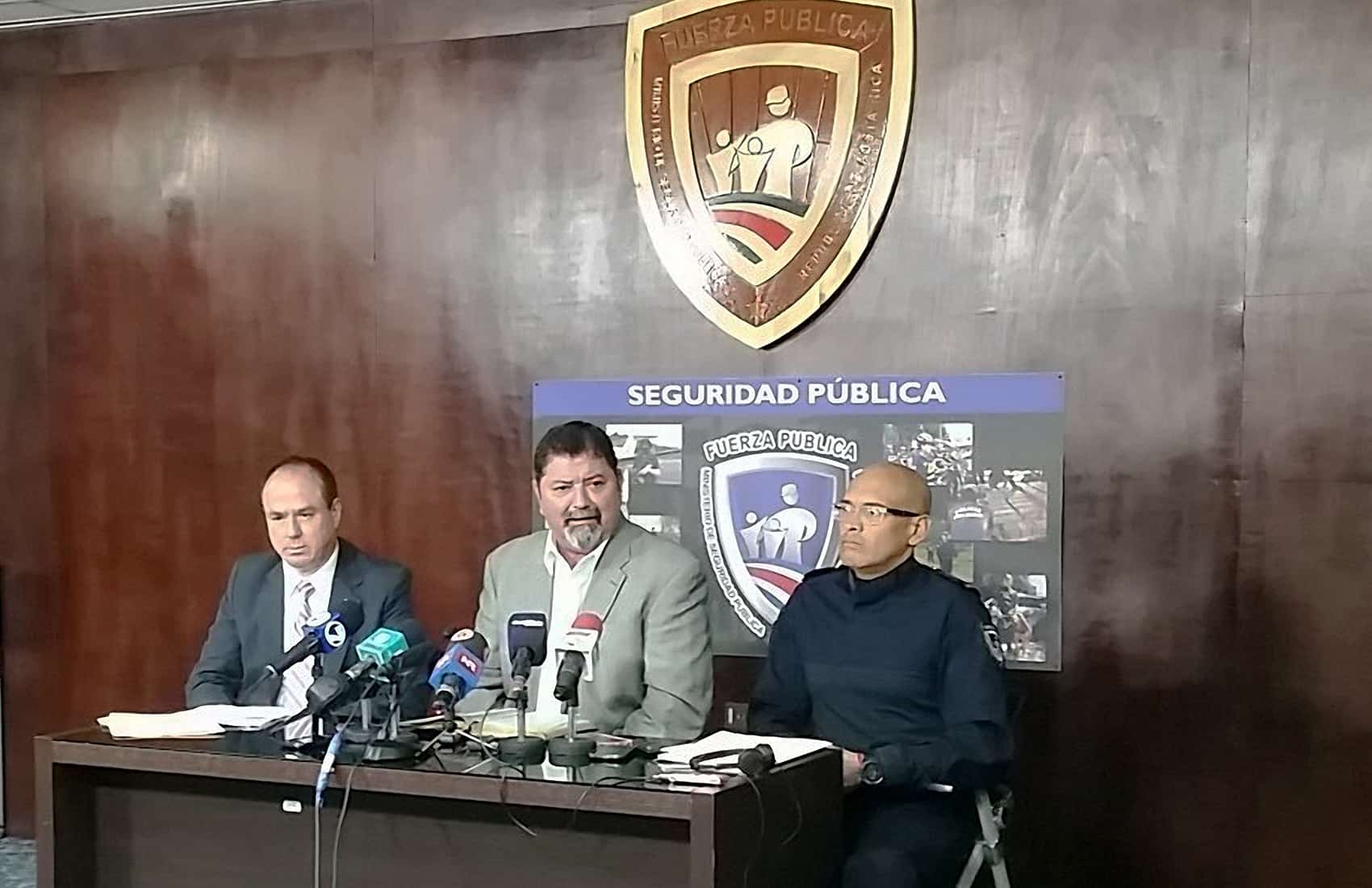Public Security Minister Gustavo Mata gave lawmakers a 30-day deadline to pass a corporate tax bill that would give the ministry more funds for policing. If they don’t, he said he’ll resign his post.
Mata gave the warning at a news conference held Monday morning to answer questions about a shootout in the Caribbean province of Limón on Sunday. The shootout resulted in four people dead and seven others injured.
"Si de hoy en 30 días no se aprueba el presupuesto presentaré mi renuncia al Presidente" @gustavomatacr
— Seguridad Pública (@seguridadcrc) October 3, 2016
Judicial Investigation Police (OIJ) Director Walter Espinoza and National Police Director Juan José Andrade joined the minister at the new conference and said they support his petition. Mata said he’s tired of “begging for more funds to improve the country’s public security.”
Shortly after noon, two other people were wounded in another shooting in Limón. And on Saturday, three people died in Alajuela during a shooting inside an illegal bar.
Mata said he was forced to send more than 100 police officers to Limón in the wake of the violence there.
“This means that we left other parts of the country with a reduced number of officers,” he said.
For over a year, the minister has been pleading with lawmakers to pass a bill that would reinstate the country’s corporate tax law, which was suspended last year by a Supreme Court ruling.
Up to 90 percent of funds collected from the tax are supposed to be invested in public security programs.
Mata said he believes the recent violent incidents could have been avoided with more police officers on the streets.
“We should have at least 18,000 police officers to face current crime levels,” Mata said, noting that there are currently some 14,000 National Police officers.
According to OIJ figures, 414 murders have occurred in the country so far this year.
Opposition from Otto
Libertarian Movement legislator Otto Guevara is the main opponent of the corporate tax bill, which would reinstate an annual tax on all corporations registered in the country. The Constitutional Chamber of the Supreme Court, or Sala IV, ruled the tax unconstitutional in 2015 due to a procedural error.
Last month, Guevara filed 200 motions against the new corporate tax bill, granting him the right to speak for more than 170 hours to explain and defend each one. That represents about 57 sessions — some seven months — before the full Assembly.
Guevara has said his goal is to “protect Ticos’ pocketbooks from more taxes.” He also said the government should focus on cutting public spending and improving collection of existing taxes.
On Monday, Mata called on Guevara and other lawmakers to allow the bill to move forward so that the Public Security Ministry can acquire the funds to hire more officers.
He said the Sala IV’s ruling represented a budget cut of ₡90,000 million ($161 million) over the past two years. Those cuts, he said, prevented police authorities from recruiting new officers, paying for training and buying new equipment.
Guevara responded, saying funds from the tax wouldn’t be used to hire more officers. According to the bill’s current wording, he noted, 90 percent of the collected funds are to be used to finance infrastructure and police equipment, not to pay salaries.
Post-publication changes doomed first tax bill
Lawmakers created the corporate tax in 2011. But they amended various articles of the tax bill after it was passed and never published those changes in the official newspaper La Gaceta.
Sala IV justices found articles 1, 3 and 5 of the law unconstitutional in January 2015. Those articles outline the implementation of the tax, its rates and sanctions for not paying.
They also suspended tax collection in 2016 pending passage of a new bill to reinstate the corporate tax.






